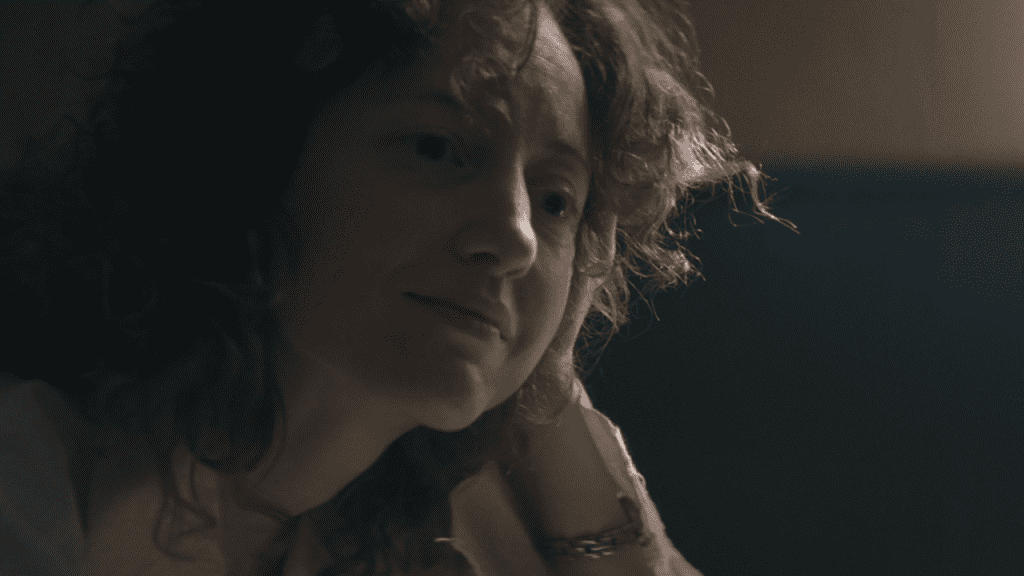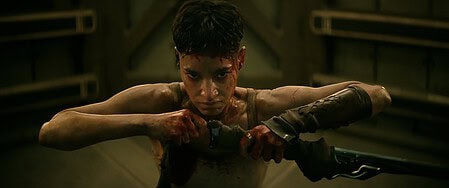CONTENT WARNING: Discussions of sexual violence and abuse, domestic violence, misogyny, transphobia
“Andrea” is a name from Ancient Greek, meaning strong and brave, originally reserved for men. And it’s a completely fitting name for firebrand feminist theorist Andrea Dworkin. She’s garnered renown—and controversy—for calling out the various forms of violence against woman in her uncompromising writing and speeches.
Now, a new hybrid documentary from director Pratibha Parmar, titled My Name is Andrea, provides an unflinching, yet intimate, exploration of Dworkin and her work. Drawing from home video, archival clips, and sound bites, the film allows Dworkin to speak her own life experience and ideas, with added visual flairs of its own. However, it also misses the opportunity to explore the complexities—and shortcomings—of her writing. Ultimately, My Name is Andrea is a compelling examination of the feminist theorist’s work— even if the documentary doesn’t quite fully examine all of its implications.
The documentary sequentially covers the key moments in Dworkin’s life that formed the bedrock of her thinking. There were two times, she recalls, where she lost the use of language following traumatic violence. After being arrested at an anti-Vietnam War protest in college, she was taken to a women’s detention center and (to spare the most graphic details) subjected to a forceful, invasive examination by male doctors. The second is after Dworkin moves to Amsterdam to continue her writing and activism. She falls in love, gets married—and becomes a victim of domestic violence.
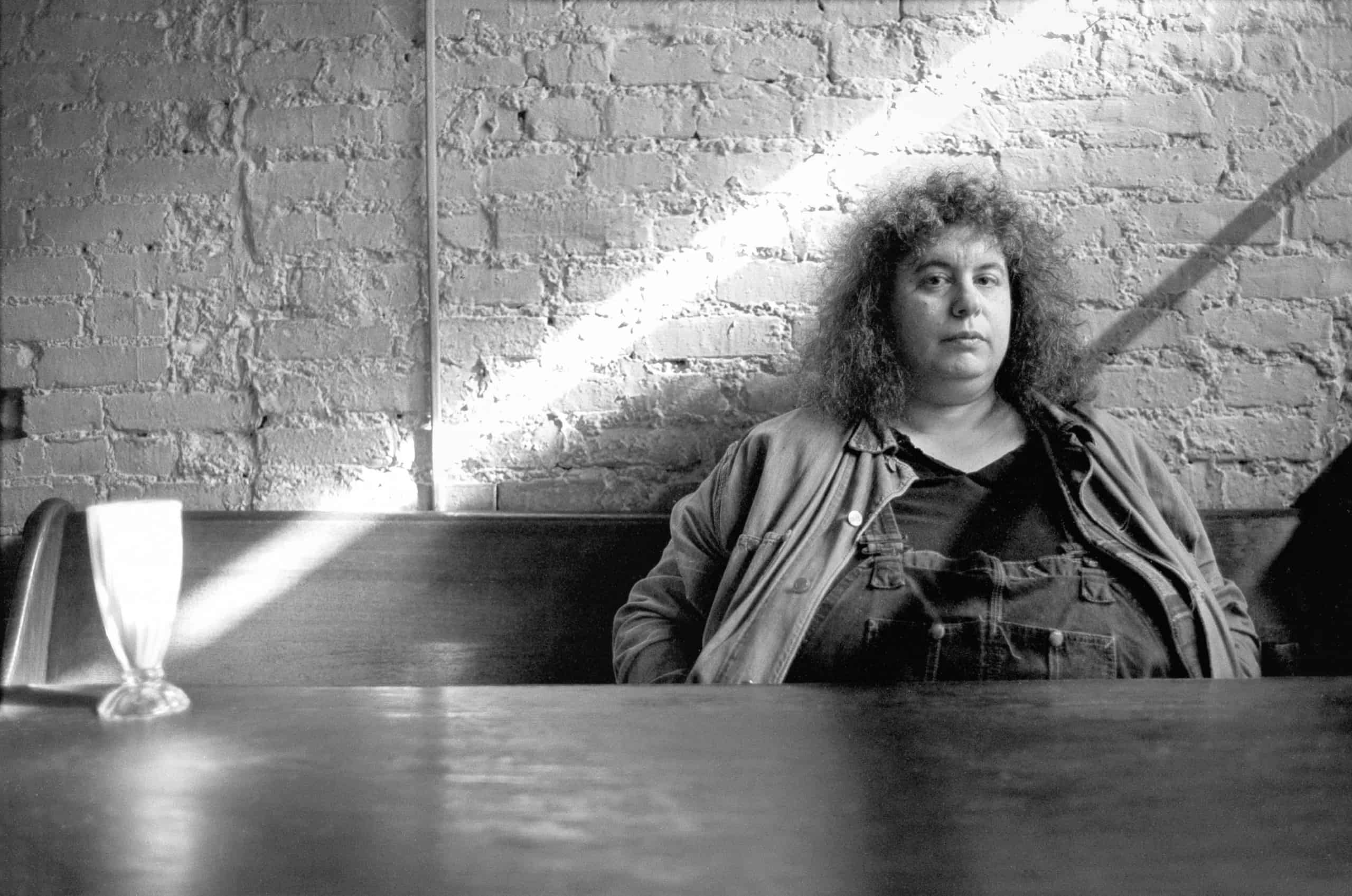
These traumatic events, along with knowing how frequently women suffered similar pain across the world, shaped the rest of Dworkin’s life and ideas. She not only recovered her language, but used it to become an outspoken advocate against femicide, violence against women, and pornography, with a fierceness that frequently attracted public controversy.
But to its credit, My Name is Andrea isn’t simply a didactic 90-minute lecture from Dworkin on dense feminist theory. She’s also an incredibly poetic writer, and Parmar astutely matches her artistic voice on a visual level. Voiceovers of Dworkin’s personal writing are accompanied by grounded shots of various actresses reenacting her experiences, from their high points (writing, reading, and falling in love) to the low (abuse, violence, and gaslighting from misogynist men). Many of these scenes underscore the traumatic impact of the violence that too many women face. (Viewers take note: These sequences are often graphic, and should be watched with care).
These scenes allow the film to show, not tell, the key points Dworkin’s ideas, and highlight why they were a crucial response to a violent patriarchal society. By doing so, the documentary succeeds at doing what many other films struggle with: showing, and not telling. The film explores its title writer’s ideas, and how they were developed, without (over)relying on pure exposition. The result is a multifaceted film that works as an introduction to Dworkin’s work, a polemic condemnation of the violence women face on the daily, and an intimate image of Dworkin herself.
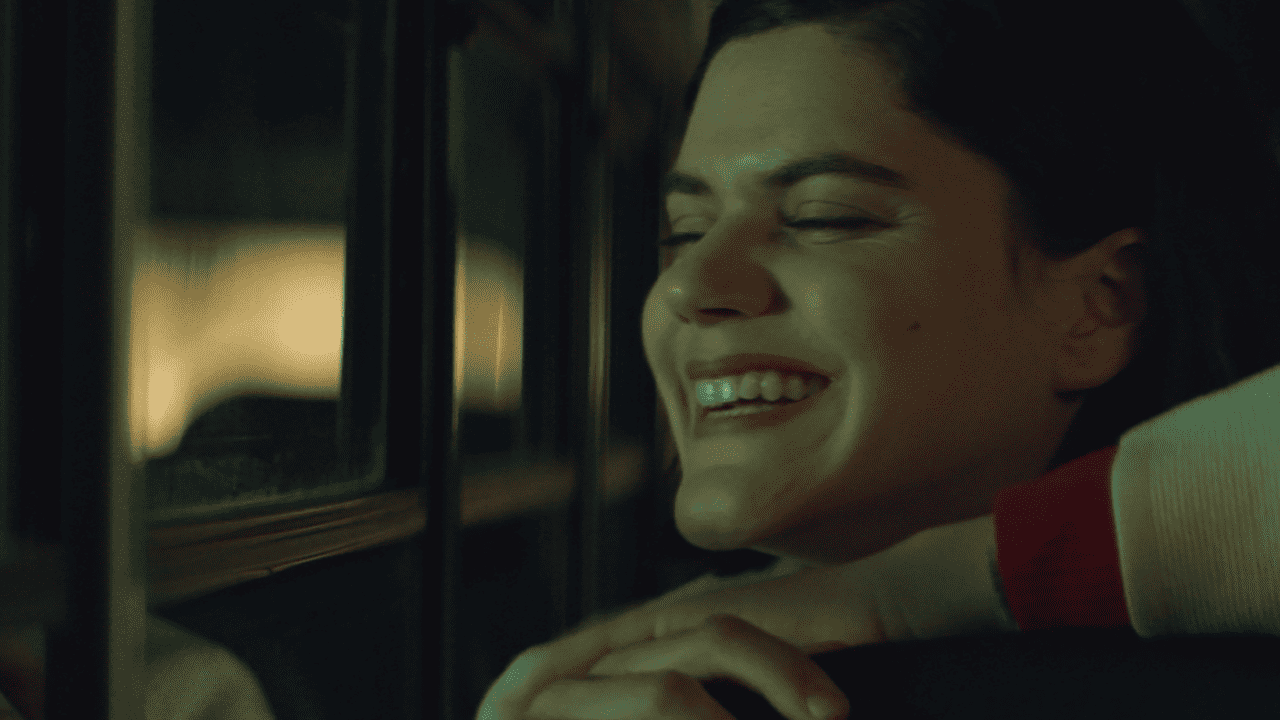
That being said, however, the My Name is Andrea’s blind spots prevent it from being a truly thorough examination of Dworkin’s work. Notably, despite frequently being described as “polarizing” and “controversial,” Dworkin is portrayed as unambiguously correct throughout the film. Few people are shown disagreeing with her, save for asshole conservative men who say things that are obviously offensive. And Dworkin herself says, during a radio interview shown in the film, that there are only “few people [she] respect[s]” who disagree with her. Nothing in this feature challenges that statement. The implication, ultimately, is that Dworkin is unconditionally right—and that there were no good faith, feminist critiques of the shortcomings in her ideology.
Here’s the thing, though: Those shortcomings are evident in My Name is Andrea. And that’s why the film’s unwillingness to engage with them is so frustrating. Valid implications and criticisms of her ideas are dropped into scenes like Easter eggs and left unexplored—at the expense of a richer understanding of Dworkin’s work, and the context in which she lived.
The first is her handling of gender. Dworkin’s theory is framed in terms of “woman” and “man,” where men hold (often violent) power over women. (Contrast this, for instance, to analyses of patriarchy as a whole). This rhetoric, however, implies a strict gender binary that erases trans and gender nonconforming (GNC) people— and, at worst, legitimizes transphobic ideologies like trans-exclusive radical feminists (TERFs). TERFs argue that women are biologically determined, and that ‘true women’ and their spaces must be protected from violence and misogyny. In practice, this justifies beliefs that trans and GNC people cannot (read: should not) exist—with violent consequences that resound today. From this perspective, Dworkin’s reliance on the gender binary leaves too much space for these ideologies, especially if her ideas are misunderstood or taken to an extreme.

This could easily be a blind spot in Dworkin’s work. But there’s a one-off line in the documentary, played over footage of a pride event, that quotes Dworkin’s support for destroying the gender binary. And this is true. Dworkin has spoken explicitly in favor of trans rights. She’s also clarified that the central concept to her theory is that “men” and “women” as two socially defined classes—not biologically preexisting entities—that can thus be undone. But the documentary does Dworkin’s ideas a disservice by never referencing this crucial nuance; instead, it buries the line under the male/female discourse that dominates the film. It’s a missed opportunity to add additional depth to Dworkin’s work.
The second is the lack of any other social factor in Dworkin’s analysis. After all, not all women are the same: Facets of their identity, like race and class, change the day-to-day oppressions and obstacles they face. This is central idea of intersectional feminism, which was explicitly created by Black feminists who found deracialized white feminism limiting. It’s been a vibrant field for decades— and much of that thinking would have been contemporaneous with Dworkin’s work. Yet Dworkin—in the documentary, at least—ignores those intersectional identity. In truth, totalizing the entire female (and male) experience) makes clear that she’s examining only white men and women.
Annoyingly, the documentary is well aware of this— but only resolves it by paying lots of lip service to people of color. Dworkin talks passionately against slavery and indigenous genocide, gushes about how meaningful Black theorist Frantz Fanon is, name drops the Black Panthers. But the actual people centered in film are all white, from the activists that Dworkin protests with to the victims of misogynist violence who portrayed and humanized (most notably, at the Ecole Polytechnique shooting, and murder of Sarah Everard). People of color exist only as background, making cameos in archival footage or serving as inspiration fuel for Dworkin.
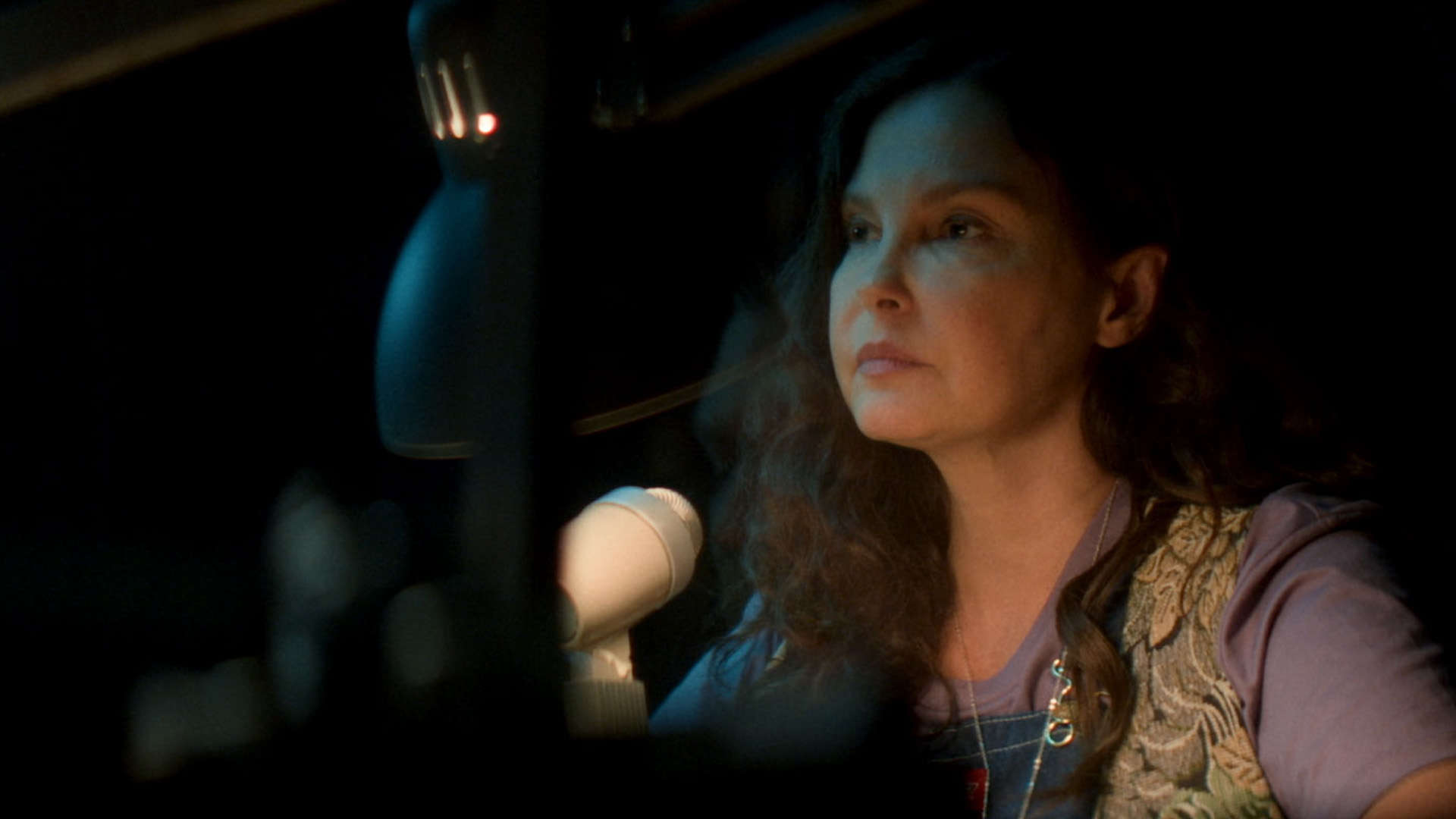
For instance, there’s two particularly graphic scenes where Dworkin describes images of a Buddhist monk burning himself in protest against the Vietnam war, and a Black Panther Party member after being shot. Seeing their pain and determination, she says, motivated her activism and personal development. But these dynamics are odd. Media today has been grappling with how harmful “trauma porn” can be to the groups it depicts—even when done to communicate how bad racism, sexism, and other discriminations. And Dworkin’s own positionality as a white woman makes her inspiration via the pain of POC especially uncomfortable.
To be clear, these dimensions are all visible in the documentary—but only as surface reference. And it’s entirely fine to be honest if Dworkin didn’t engage with Black and other theorists and activists of color at a deeper level than that. It would be worth exploring that as a shortcoming of her work, similar to the potentially limited ways she approached gender. Not to do so robs Dworkin’s ideas of greater depth, and removes critical societal, intellectual, and contemporary context throughout the film.
Overall, My Name is Andrea is oddly protective of Dworkin’s reputation. It brings up those relevant issues— as if anticipating the rebuttals that viewers will have—without exploring them in any depth. No theorist is perfect, and critiques are not condemnations; Dworkin herself likely would be open to having hers treated with complexity. Instead, the film deliberately ignores those points. This was a missed opportunity at both fleshing out Dworkin’s complex ideas more, and tying them closer to the vibrant intellectual environment in which she lived.
However, to be absolutely clear: Those points are mainly improvements that would have made the documentary much more complete, rather than condemnations of it. Because even as it is, the film is compelling and thought provoking. Ultimately, My Name is Andrea does well to give viewers a taste of Dworkin’s fire and ideas through an intimate look at her own life—and, hopefully, encourage them to explore those concepts further outside the bounds of a short 90 minute film.
My Name is Andrea was viewed at the Athena Film Festival.
Director: Pratibha Parmar
Rated: NR
Runtime: 94m
Ultimately, My Name is Andrea does well to give viewers a taste of Dworkin’s fire and ideas through an intimate look at her own life—and, hopefully, encourage them to explore those concepts further outside the bounds of a short 90 minute film
-
GVN Rating 7
-
User Ratings (0 Votes)
0


